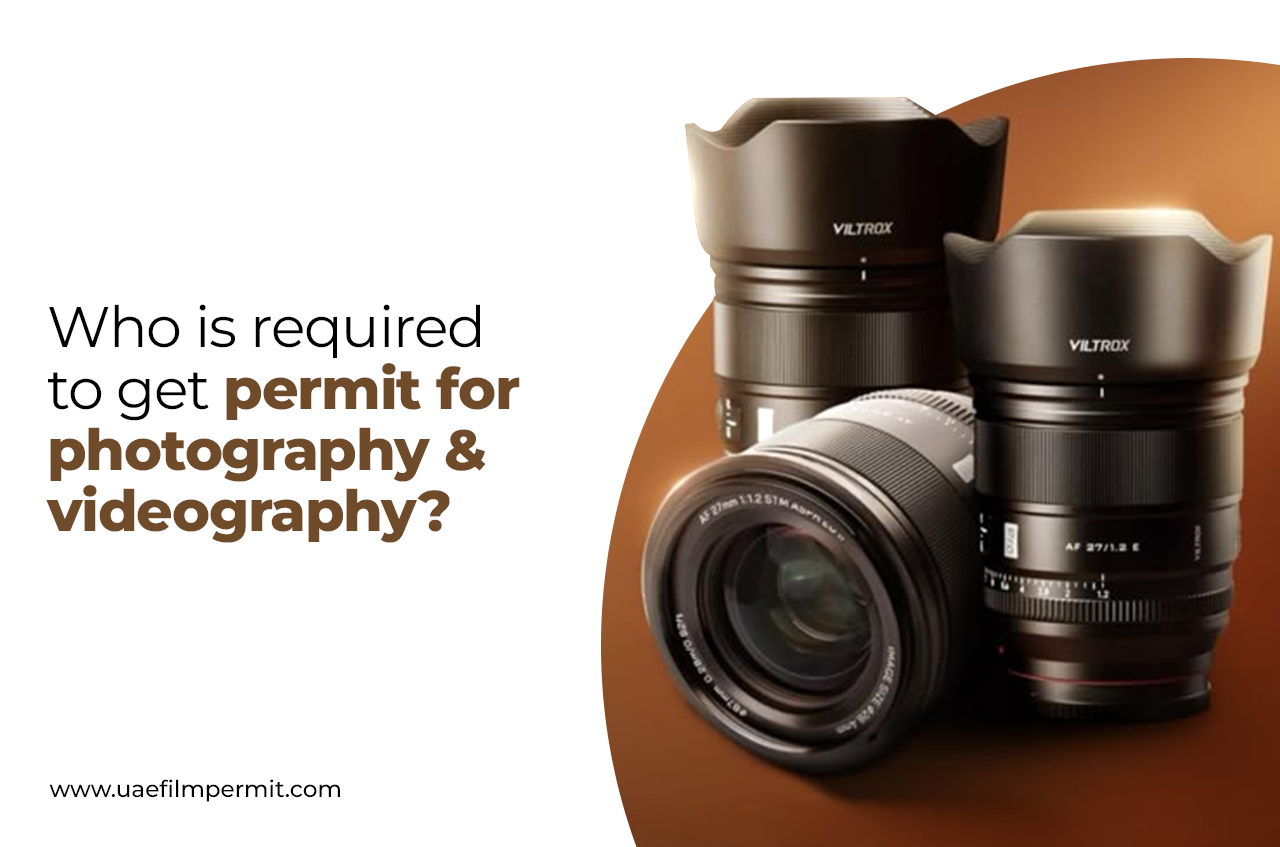The demand for photography and videography has increased sharply due to the rise of digital platforms, visual marketing, social media, and cinematic storytelling. Whether for personal expression, promotional campaigns, or professional documentation, the use of cameras and drones has become widespread across urban, natural, and private settings. As this demand grows, understanding the legal boundaries of shooting in public or sensitive spaces has become critical.
Filming or photographing without permission in certain areas can lead to regulatory violations, fines, or even criminal charges. Each country, region, and city may enforce its own rules based on cultural sensitivity, security, or administrative regulations. Hence, obtaining a photography permit or videography permit is often mandatory.
This guide is designed for content creators, marketing agencies, filmmakers, influencers, tourists, and businesses intending to shoot visuals within regulated environments. Whether you’re planning a travel vlog, commercial campaign, or an independent film, this blog will help you understand who is required to get a permit, when it’s needed, and how to apply for it legally in the UAE, and similar jurisdictions.
Why Permits Are Required for Photography and Videography
Permits serve a legal, social, and administrative purpose. One of the main reasons authorities require a photography permit or videography permit is to ensure that the public space is not misused, overcrowded, or exploited without accountability.
Filming or photographing in areas with historical or cultural value demands extra care. A permit ensures that the visual content created in such zones respects the site’s heritage and avoids unapproved commercial exploitation. It also prevents the misuse of imagery that may misrepresent, insult, or commercialise cultural icons or symbols.
Furthermore, permits allow the local authorities to plan for crowd control, safety logistics, and infrastructural demands. When large-scale productions shoot with complex gear, lighting rigs, or drones, they often need traffic access, space demarcation, or municipal support. Permits ensure these productions are safely executed without public disruption.
Finally, government regulations must be enforced to maintain public order. Permits are part of lawful conduct for media creation. They help the authorities keep track of who is shooting what, where, and why, an essential step in monitoring security and protecting citizens’ privacy.
Individuals and Groups Who Typically Need Permits
- Commercial Videographers and Photographers
Any person a company engaged in professional visual production for profit must apply for a permit. Commercial shoots include advertisements, brand campaigns, music, videos, and corporate promotional films. Since these shoots often involve actors, props, equipment, and controlled environments, permits ensure that local operations are coordinated and compliant.
- Content Creators & Influencers
Social media influencers who monetise their content or collaborate with brands are also expected to apply for a photography permit or videography permit. Sponsored content or vlogs that feature recognisable landmarks or people for promotional benefit can be classified as commercial activity. Even if shot with minimal gear, such usage is regulated in places like the UAE.
- Filmmakers and TV Producers
Independent filmmakers, TV producers, and documentary makers are required to obtain permits when shooting scripted or unscripted visual content in public or restricted zones. Whether the project is a short film, feature film, or reality series, visual content that will be broadcast or screened for profit or public viewing typically needs prior approval.
- Event Photographers
Photographers covering private events that take place in public spaces, heritage locations, or government-controlled properties require permits. Desert shoots, public beach events, and shoots near iconic landmarks often come under regulated jurisdiction and need official clearance.
- Drone Operators
Drone filming is tightly regulated, particularly in UAE cities like Dubai and Abu Dhabi. Operators need to comply with airspace usage rules and must obtain a specific permit for drone videography or photography. This includes registration of the drone, pilot licensing, and declaration of intended shooting zones.
- Tour Companies and Travel Vloggers
Tour operators using visuals for promotional use of their website, brochures, or YouTube channels must apply for permits when capturing public or protected areas. Similarly, travel vloggers producing monetised videos for platforms like Instagram, TikTok, or YouTube need to obtain appropriate filming permissions. Situations That Usually Require a Permit
Permits are mandatory in specific scenarios regardless of the size of the production. Common situations where a photography permit or videography permit is required include:
- Filming in Public Parks, Beaches, and Heritage Sites: These areas are controlled by municipal or cultural authorities, and commercial use of their space or imagery is not allowed without prior approval.
- Shooting in Malls, Airports, and Metro Stations: These are privately or government-managed premises with heavy footfall, security concerns, and branding limitations. Even simple mobile filming is restricted.
- Using Large Scale Production Equipment: The use of dollies, cranes, stabilisers, lighting kits, or even tripods in public zones usually mandates permission due to space usage and safety concerns.
- Blocking Traffic or Crowd: If your shoot requires street access, blocking passage, or minor traffic disruptions, official clearance is essential to ensure public safety and proper coordination.
- Filming Near Government or Security Buildings: Government offices, embassies, and other high-security sites are off-limits without specific clearance due to national security laws.
Who May Not Need a Permit (But Should Still Be Cautious)
Certain individuals may not require a photography permit or videography permit under limited and strictly non-commercial circumstances. However, they must still remain cautious and respectful of local laws.
- Tourists Taking Casual Photos: If you’re casually capturing vacation memories with your mobile phone or handheld camera, without commercial intent, permits are generally not required. But avoid restricted areas.
- Students Filming for Educational Purposes: Film students or media trainees may be exempt under educational clauses, provided they can produce letters of authorisation from their institutions. Restrictions on location and equipment still apply.
- Social Media Users Creating Non-Commercial Content: Casual users filming for personal social media updates without monetisation are often not required to have permits, provided they film in open, unrestricted areas.
- Mobile Photography in Informal Settings: Filming everyday scenes or architecture with a phone in low-traffic zones may not attract regulation, but discretion is advised to avoid filming people without consent.
How to Apply for a Permit
Obtaining a permit in the UAE involves a defined application process, especially when filming in Dubai, Abu Dhabi, or Sharjah. Here’s how it typically works:
- Identify the Jurisdiction: Determine where your shoot will take place. For Dubai, the Dubai Film and TV Commission handles permit approvals. Other emirates have municipal departments.
- Contact the Relevant Authority: Reach out to the local permit office or apply through an online portal like the UAE Film Permit platform. Production companies often facilitate this process on your behalf.
- Prepare Documentation: You’ll need to submit:
- Passport copy and Emirates ID (if applicable)
- A detailed shooting schedule
- Synopsis or script summary
- Crew list and equipment details
- NOC from location wonder if using private premises
- Pay the Required Fees: Charges depend on the location, type of project, and production size. Fees cover admin costs and public coordination services.
- Wait for Approval: Permit approval can take anywhere from 3 to 10 working days, depending on the complexity. High-security or high-traffic areas may require longer scrutiny.
- Engage Local Fixers: Partnering with a licensed local production fixer or agency can ease the process. They are familiar with regional rules and can help expedite approvals and location scouting.
Read more: Do You Need a Film Permit on Private Property? What You Must Know
Risks of Filming Without a Permit
Filming or photographing in restricted areas without the appropriate permit can lead to significant legal and financial consequences:
- Fine and Penalties: Local authorities can impose heavy fines on individuals or companies that violate filming laws. These penalties vary based on the nature of the offense, ranging from AED 5,000 to over AED 50,000 in serious cases.
- Confiscation of Equipment: Unauthorised gear may be seized during surprise inspections or complaints by bystanders. Recovery can be expensive and time-consuming, especially for foreign filmmakers.
- Delays and Shutdowns: Entire shooting schedules may be halted if a production is flagged without proper clearance. This leads to wasted time, extra costs, and possible location blacklisting.
- Legal Trouble: Violating privacy rights, filming minors without consent, or recording near government buildings without a videography permit can escalate into criminal proceedings.
- Visa and Entry Implications: For tourists and expats, regulatory violations can affect visa renewals or future entry into the UAE.
Expert Tips from Local Professionals
- Understand Bureaucracy Early
Permit applications involve coordination with government departments, location owners, and regulatory bodies. Begin the process well in advance to avoid last-minute issues. Research the specific requirements of each emirate or municipality, as regulations differ between Dubai, Abu Dhabi, and Sharjah. Include buffer time in your schedule for possible document revisions or follow-ups.
- Choose Locations Strategically
Some areas are more permit-friendly than others. Locations like studio zones, hotel properties with media liaison teams, and city-approved film corridors are often easier to coordinate with. These places may have pre-approved templates for visual production, reducing paperwork. Avoid zones near airports, military bases, or protected natural reserves unless your concept specifically justifies their inclusion.
- Communicate with Authorities
Transparency is essential when describing your shoot’s purpose, duration, and method. Share your storyboard, script summary, or brand affiliation upfront to gain trust. Misrepresentation of your project can lead to immediate rejection. Authorities appreciate clarity, being honest about crew size, drone usage, and potential crowd impact can improve approval odds.
- Work with Licensed Partners
Local production fixers or media agencies understand the internal workings of regional film commissions. These experts can help with paperwork, scout permit-friendly locations, manage Arabic language communication, and ensure compliance with cultural expectations. They can also intervene in case of on-ground disputes, making them indispensable for international or first-time applicants.
Conclusion
Getting a photography permit or videography permit is a necessary part of responsible content creation in the UAE and many other global locations. Whether you’re a tourist with a camera or a production house filming a commercial, respecting legal and cultural boundaries protects your project, your crew, and the integrity of the space you’re capturing.
Plan your shoot thoroughly, understand local regulations, and work with licensed professionals where necessary. Avoid unnecessary risks and delays by ensuring every visual asset you create is backed by the right approvals.
To get expert guidance or begin your permit application, visit UAE Film Permit and connect with qualified consultants who can assist with every stage of the process.




